- What We Do
- Agriculture and Food Security
- Democracy, Human Rights and Governance
- Economic Growth and Trade
- Education
- Ending Extreme Poverty
- Environment and Global Climate Change
- Gender Equality and Women's Empowerment
- Global Health
- Water and Sanitation
- Working in Crises and Conflict
- U.S. Global Development Lab
- COUNTRIES
- MULTIMEDIA
- PROJECTS
- PUBLICATIONS
- TECHNICAL AREAS
USAID's work for maternal and child health encompasses a wide range of projects and programs. Our implementing partners span national governments, NGOs, civil society organizations and the private sector.
Accelovate
The strategic objective of the Accelovate project is to increase the availability and sustained use of innovations in low-resource settings that are designed to accelerate reductions in mortality and morbidity.
The strategic objective of the Accelovate project is to increase the availability and sustained use of innovations in low-resource settings that are designed to accelerate reductions in mortality and morbidity.
The Demographic and Health Surveys Program
For 30 years, USAID has pioneered the DHS Program, providing technical assistance for the implementation of more than 300 household and facility-based surveys in more than 90 countries across Africa, Asia, Latin America/Caribbean and Eastern Europe.
For 30 years, USAID has pioneered the DHS Program, providing technical assistance for the implementation of more than 300 household and facility-based surveys in more than 90 countries across Africa, Asia, Latin America/Caribbean and Eastern Europe.
Every Preemie: SCALE
Through Every Preemie: SCALE, USAID aims to catalyze global uptake of preterm/low birthweight interventions, overcome bottlenecks and significantly increase coverage to decrease newborn mortality.
Through Every Preemie: SCALE, USAID aims to catalyze global uptake of preterm/low birthweight interventions, overcome bottlenecks and significantly increase coverage to decrease newborn mortality.
Fistula Care Plus
Fistula Care Plus aims to strengthen health system capacity for fistula prevention, detection, treatment, and reintegration in sub-Saharan Africa and South Asia. access.
Fistula Care Plus aims to strengthen health system capacity for fistula prevention, detection, treatment, and reintegration in sub-Saharan Africa and South Asia. access.
Health Policy Project
HPP helped to translate health program goals into policies, plans and actions in partner countries worldwide by building in-country capacity and addressing barriers to equitable health services.
HPP helped to translate health program goals into policies, plans and actions in partner countries worldwide by building in-country capacity and addressing barriers to equitable health services.
Health Research Challenge for Impact
The Health Research Challenge for Impact (HRCI) applies research findings and evaluation results to help establish global prevention and treatment guidelines for effective maternal, newborn, and child health and nutrition programs.
The Health Research Challenge for Impact (HRCI) applies research findings and evaluation results to help establish global prevention and treatment guidelines for effective maternal, newborn, and child health and nutrition programs.
HealthTech V
The objective of HealthTech V is to develop, adapt, evaluate, and facilitate the introduction of solutions for the distribution of health services in low-resource settings for newborns and children.
The objective of HealthTech V is to develop, adapt, evaluate, and facilitate the introduction of solutions for the distribution of health services in low-resource settings for newborns and children.
Integrating Community Health Program
The Integrating Community Health Program (ICH) is a collaboration between the U.S. Agency for International Development (USAID) and the United Nations Children's Fund (UNICEF) that will support countries to achieve and sustain effective coverage of proven health interventions at scale and contribute to preventing child and maternal deaths.
The Integrating Community Health Program (ICH) is a collaboration between the U.S. Agency for International Development (USAID) and the United Nations Children's Fund (UNICEF) that will support countries to achieve and sustain effective coverage of proven health interventions at scale and contribute to preventing child and maternal deaths.
Maternal and Child Survival Program (MCSP)
Awarded in 2014, the (MCSP) was announced as a multi-partner, flagship program in support of USAID’s efforts to improve maternal and child survival. MCSP’s work is evidence-based and results oriented.
Awarded in 2014, the (MCSP) was announced as a multi-partner, flagship program in support of USAID’s efforts to improve maternal and child survival. MCSP’s work is evidence-based and results oriented.
MEASURE Evaluation Phase IV
The MEASURE Evaluation Phase IV project assists partner governments and institutions to generate and make use of high-quality health systems data that can be used to guide decision-making on effective interventions.
The MEASURE Evaluation Phase IV project assists partner governments and institutions to generate and make use of high-quality health systems data that can be used to guide decision-making on effective interventions.
Post-Abortion Care
The PAC-FP Award aims to increase informed and voluntary use of post-abortion family planning and to expand the choice of methods available to PAC clients to include long-acting reversible contraceptives and permanent methods, and to provide immediate lifesaving care.
The PAC-FP Award aims to increase informed and voluntary use of post-abortion family planning and to expand the choice of methods available to PAC clients to include long-acting reversible contraceptives and permanent methods, and to provide immediate lifesaving care.
Prevention and Treatment of Eclampsia and Pre-Eclampsia
The project to prevent and treat pre-eclampsia and eclampsia (PE/E) aims to improve the early detection and management of PE/E, including by increasing the use of magnesium sulfate, an underutilized priority commodity for reproductive maternal, newborn and child health.
The project to prevent and treat pre-eclampsia and eclampsia (PE/E) aims to improve the early detection and management of PE/E, including by increasing the use of magnesium sulfate, an underutilized priority commodity for reproductive maternal, newborn and child health.
Saving Lives at Birth
Saving Lives at Birth seeks innovative ideas to leapfrog conventional approaches in three main domains: (1) technology; (2) service delivery; and (3) "demand side" innovation that empowers pregnant women and their families to practice healthy behaviors.
Saving Lives at Birth seeks innovative ideas to leapfrog conventional approaches in three main domains: (1) technology; (2) service delivery; and (3) "demand side" innovation that empowers pregnant women and their families to practice healthy behaviors.
Saving Mothers, Giving Life
The SMGL partnership brings together national governments, NGOs, the private sector and professional associations to reduce maternal and newborn mortality through a health systems approach emphasizing access to clean, safe childbirth services and timely emergency care.
The SMGL partnership brings together national governments, NGOs, the private sector and professional associations to reduce maternal and newborn mortality through a health systems approach emphasizing access to clean, safe childbirth services and timely emergency care.
Survive & Thrive Global Development Alliance
The Survive & Thrive Alliance works with country governments and health professionals in countries throughout Asia and Africa to improve health outcomes for mothers, children and newborns through clinical training, systems strengthening and policy advocacy.
The Survive & Thrive Alliance works with country governments and health professionals in countries throughout Asia and Africa to improve health outcomes for mothers, children and newborns through clinical training, systems strengthening and policy advocacy.
TRAction
The strategic objective of the TRAction project is to provide critical evidence to program implementers and policy makers worldwide on how to implement new and proven maternal, newborn, and child health interventions at scale and across different contexts.
The strategic objective of the TRAction project is to provide critical evidence to program implementers and policy makers worldwide on how to implement new and proven maternal, newborn, and child health interventions at scale and across different contexts.
Water, Sanitation, and Hygiene Partnerships and Learning for Sustainability (WASHPaLS)
WASHPaLS aims to reduce morbidity and mortality in children under 5 by ensuring that programming employs high-impact, evidence-based environmental health and water supply, sanitation, and hygiene interventions. The program identifies best practices for the delivery of WASH services and sustained behavior change that is necessary to eliminate open defecation and move communities up the sanitation ladder.
WASHPaLS aims to reduce morbidity and mortality in children under 5 by ensuring that programming employs high-impact, evidence-based environmental health and water supply, sanitation, and hygiene interventions. The program identifies best practices for the delivery of WASH services and sustained behavior change that is necessary to eliminate open defecation and move communities up the sanitation ladder.
Related Sectors of Work







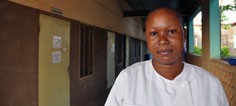
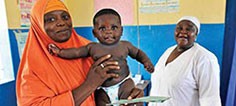
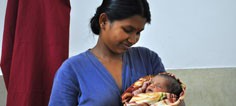
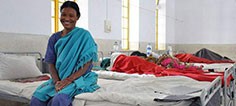
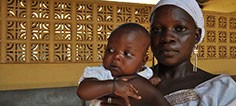
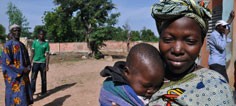
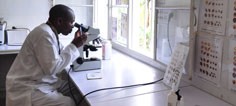
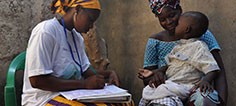
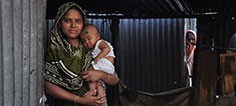
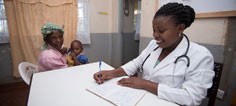


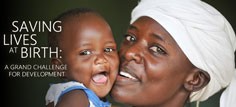

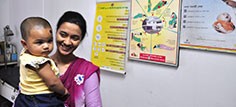
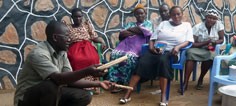
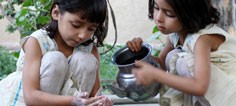
Comment
Make a general inquiry or suggest an improvement.